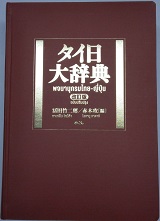・読者登録
・団体購読のご案内
・「編集委員会会員」を募集
橋本勝21世紀風刺絵日記
記事スタイル
・コラム
・みる・よむ・きく
・インタビュー
・解説
・こぼれ話
特集
・アジア
・農と食
・人権/反差別/司法
・国際
・イスラエル/パレスチナ
・入管
・地域
・文化
・欧州
・市民活動
・検証・メディア
・核・原子力
・環境
・難民
・中東
提携・契約メディア
・AIニュース


・司法
・マニラ新聞

・TUP速報



・じゃかるた新聞
・Agence Global
・Japan Focus

・Foreign Policy In Focus
・星日報
Time Line
・2025年04月01日
・2025年03月31日
・2025年03月30日
・2025年03月29日
・2025年03月28日
・2025年03月27日
・2025年03月26日
・2025年03月23日
・2025年03月22日
・2025年03月21日
|
|
2007年12月19日23時36分掲載
無料記事
印刷用
時事英語一口メモ
【37】デカップリング
<A href="http://jijieigo.at.webry.info/200804/article_13.html" target="_blank">ブログ版</A>
国際経済での今年の流行語は“decoupling”(デカップリング)であろう。「世界経済の米国からの切り離し(デカップリング)」を意味する。米国経済が減速しても中国などの新興諸国や欧州が世界の経済成長を引っ張り、世界経済の拡大が継続するという説だ。世界経済が米国依存から脱却し、多極化するというパラダイムシフトである。サブプライムローン問題に端を発した金融危機の中、デカップリング論が試されている。(鳥居英晴)
“decouple”とは「切り離す」という意味。” decoupling”は経済的な意味では、経済成長が環境への圧迫に結びつかないようにすることの意味で使われてきた。農業政策では、自然環境を守るという考え方に基づいて、農業生産と切り離し、農家に直接所得補償する政策をいう。
「世界経済の米国からの切り離し」という意味で“decoupling”という言葉が使われ出したのは米国経済が減速の兆しを見せ始めた昨年あたりから。国際通貨基金(IMF)が今年4月に発表した「世界経済見通し」は”Decoupling the Train? Spillovers and Cycles in Global Economy”(列車は切り離せるか?世界経済における波及効果と景気循環)と題する章を設け、デカップリング論を支持するニュアンスの内容になっている。
The old saying, “If the United States sneezes, the rest of the world catches a cold,” remains relevant since the analysis shows that recessions in the United States (and, to a lesser extent, in other large economies) can exert significant spillovers on both advanced and developing economies. However, it also is an exaggeration because the estimated spillovers, as measured by the declines in output growth, are generally considerably smaller than the output decrease in the United States itself, particularly in the context of midcycle slowdowns.
(「米国がくしゃみをすれば、世界は風邪をひく」という古い言い回しは現在も有効である。なぜなら、米国、より少ない程度にその他の主要国での景気後退は、先進国と途上国の両方に重大な波及効果を及ぼすことを分析は示しているからだ。だが、これは誇張でもある。なぜなら、生産量の伸びでの減少で計った波及効果は一般的に、米国での生産の減少よりずっと小さいと推定されるからである。景気循環半ばでの減速の関連では特にそうである)
デカップリング論を支持しないことを明言している米投資銀行のモルガン・スタンレー・アジアの会長、スティーブン・ローチはIMFの経済見通しについて同社のGlobal Economic Forum(4月9日)で”Spillovers versus Linkages”(波及と連関)と題し次のように述べている。
I have long been struck by the inherent inconsistency of a macro call that extols the virtues of integration and globalization, on the one hand, while celebrating the resilience of a decoupled world, on the other hand. Don’t kid yourself – if the lead engine of the global growth train goes off the tracks, the rest of the world will be quick to follow. So far, that hasn’t happened – underscoring my basic conclusion that there has yet to be a meaningful test of the global decoupling thesis. It’s up to the American consumer as to whether that test will ever occur.
(統合とグローバリゼーションの長所を称えながら、他方でデカップルした世界の活気を称賛する経済予測の内在した矛盾にわたしはかねて驚いていた。現実を甘く見てはいけない。世界の成長を引っ張っている列車の先頭機関車が脱線したら、残りの世界は直ちに後に続くであろう。これまでのところ、それは起きていない。そのことは、世界的デカップリング論は大きな試練をまだ受けていないというわたしの基本的な結論をはっきり示している。試練があるかどうかは米国の消費者にかかっている)
サブプライムローン(信用度の低い借り手向け住宅ローン)問題が今年夏以降、拡大していくと、デカップリング論の形勢が悪くなってきた。ロイター通信(8月30日)は“Subprime saga strains economic decoupling theory”(サブプライム問題、デカップリング論に打撃)という見出しのEmily KaiserとKevin Plumbergによる分析記事を流した。
The subprime saga has dented a popular theory that the United States is ceding its position as the engine of the world economy, casting doubt on whether global growth can withstand a U.S. downturn.
(サブプライム問題は、米国は世界経済のエンジンとしての地位を明渡しているというよく知られた説に不利な影響を与え、世界の成長が米国の景気後退に耐えることができるかどうか疑問が投げかけられている)
As recently as June, economists at several major investment banks argued that the rest of the world was decoupling from the U.S. economy as rising powers such as China pulled their weight and a global investment boom kept money flowing.
Stephen Jen, global head of currency research at Morgan Stanley, was one of the staunchest supporters of the decoupling theory but acknowledged it is undergoing a major test that depends almost entirely on how the U.S. stock market responds to its troublesome sibling, the credit market.
(主要投資銀行のエコノミストは6月にも、中国のような台頭しつつある大国が役割を果たし、世界的な投資ブームで資金は入り続けるので、世界は米国経済から切り離されと主張した。
モルガン・スタンレーの通貨調査部長のスティーブン・ジェンはデカップリング論の最も筋金入りの支持者であったが、その理論は大きな試練を受けており、米国の株式市場が問題を起こしている金融市場にどのように反応するかにかかっていることを認めた)
"If you have a severe correction in the U.S. equity market and severe correction in the credit market, you are going to see the same thing echoed in the entire world, and a broader slowdown than the theory would suggest," Jen said.
(「米国の株式市場で厳しい下落があり、金融市場で厳しい下落があれば、同じことが世界全体で起き、その理論が示すより幅広い減速があるであろう」とジェンは語った)
ロイター通信(10月12日)のHerbert Lashは“Emerging market ‘decoupling!’ theory may be premature”(新興市場のデカップリング論は時期尚早か)という見出しの記事で次のように述べている。
The notion that the U.S. is no longer the driver of world economic growth is in vogue on Wall Street, yet the idea that Europe and Asia have "decoupled" from the American economic engine may be more an investor hope than a sound investment theory.
(米国はもはや世界経済のけん引者ではないという考えがウォールストリートでは流行っている。だが、欧州とアジアが米国経済から「切り離された」という考えは妥当な投資理論というより投資家の望みであるかもしれない)
An enormous shift has occurred in the global economy away from the developed world to emerging markets, said Antoine van Agtmael, who is chairman of Emerging Markets Management LLC in Arlington, Virginia, and who is credited with coining the term "emerging markets."
(バージニア州のアーリントンにあるエマージング・マーケッツ・マネイジメントの会長、Antoine van Agtmaelは、世界経済では先進世界から新興市場への大きな移動が起きたと言う。彼は「新興市場」という言葉を造語した)
Emerging markets now account for about one-quarter of global gross domestic product, about the same as the U.S. contribution, he noted.
(新興市場は世界の総生産の約4分の1を占めており、米国の寄与と同じだと彼は言う)
Still, van Agtmael, who is attributed with first using the term "emerging markets" as an alternative to "Third World" in the early 1980s when he was a World Bank executive, remains skeptical that the world can fully decouple from the U.S. economy.
(それでも、世銀の幹部であった1980年代初めに「第三世界」という言葉の代わりに「新興市場」という言葉を最初に使ったとされるvan Agtmaelは、世界が完全に米国経済から切り離されることができるか懐疑的である)
In an age of globalization, emerging markets are part of the world and a U.S. slowdown is likely to be felt globally, he said.
(グローバリゼーションの時代には、新興市場は世界経済の一部であり、米国経済の減速は世界全体で感じられそうだ、と彼は言う)
"If there is a slowing in the United States, and especially if there is a slowing not just in the United States but in other parts of the developed world, then yes it will be felt" around the world, said van Agtmael.
(「米国で減速があり、特に米国だけではなく先進世界の他の部分でもあった場合、それは世界中で感じられるであろう」とvan Agtmaelは語った)
ブルームバーク・ニュース(12月7日)のSimon Kennedyの記事は“‘Decoupling' Debunked as U.S. Collapse Infects World”(「デカップリング」論の誤り明らかに 米国の破たん、世界に影響を及ぼす)という見出しがついている。
It turns out the U.S. economy matters after all.
The credit collapse and dollar decline that followed a surge in U.S. home foreclosures jeopardize expansions in the U.K., Canada and Germany, economists said. They also debunk ``decoupling,'' an argument advanced by analysts at Goldman Sachs Group Inc. and Morgan Stanley that the world wouldn't suffer as it did during U.S. slowdowns in previous decades.
(結局、米国経済が重要なのだということが分かった。エコノミストによれば、米住宅の差し押さえの急増に伴う信用市場の崩壊とドルの下落が英国、カナダ、ドイツの景気拡大を危うくしている。過去数十年に米国経済が減速した時にそうであったようには世界経済は影響を受けないというゴールドマン・サックス・グループとモルガン・スタンレーのアナリストが主張していた「デカップリング」の議論は誤りであったことが証明された)
``Two thousand and eight will be the year of `recoupling','' said Peter Berezin, an economist at Goldman in New York, explaining his firm's about-face. ``What began as a U.S.-specific shock is morphing into a global shock.''
(ニューヨークのゴールドマンのエコノミスト、Peter Berezinは同社の方針転換を説明して、「2008年は『リカップリング』の年になるであろう」と語った。「米国特有の衝撃として始まったものが、世界的な衝撃に変わりつつある」)
Decoupling is ``a good story, but it's not going to work going forward,'' Stephen Roach, chairman of Morgan Stanley in Asia, said in an interview in New Delhi on Dec. 2. His colleague, Stephen Jen, said in a report the previous week that because the possibility of a U.S. recession has increased, so has the chance that the rest of the world will falter.
(モルガン・スタンレーのスティーブン・ローチはニューデリーでの2日のインタビューで、デカップリングは「話しとしては面白いが、今後はうまくいかないであろう」と語った。同社のスティーブン・ジェンはその前週のリポートで、米経済の景気後退の可能性が高まっていることから、世界も低迷する可能性が高まったと述べている)
``The American consumer is the big gorilla on the demand side of the global economy,'' Roach said. ``As the slowdown goes from housing to consumption, we'll find the world is not as decoupled as it thinks.''
(「米国の消費者は世界経済の需要の面で大きなゴリラだ」とローチは語った。「減速が住宅から消費に向かうと、世界はそんなに切り離されていないことが分かるであろう」)
英紙デイリーテレグラフ(12月12日)のAmbrose Evans-Pritchardは“Decoupling dies as half the globe hits crunch”(世界の半分が危機の襲われ、デカップリングは死んだ)と述べている。
China is indeed gobbling up iron ore, soybeans, and crude oil, but it still makes up less than 4pc of global consumption and is no longer adding to total demand. Imports have been more or less flat since April.
(中国は鉄鉱石、大豆、原油を大量に消費しているが、まだ世界の消費の4%以下を占めているに過ぎないし、需要全体を増加させてはいない。輸入は4月以来、大体横ばいである)
China is boosting GDP at the world's expense, by snatching markets with a cheap yuan. It is beggar-thy-neighbour growth.
(中国は安い元で市場を奪い、世界を犠牲にしてGDPを伸ばしている。それは近隣窮乏化的な成長である)
Note that Goldman Sachs, Morgan Stanley, and Lehman Brothers, have all begun to tear up the "decoupling" manual. - the pre-crunch script assuring us that the world could get along fine as the US buckled.
(次のことに留意すべきだ。ゴールドマン・サックス、モルガン・スタンレー、レーマン・ブラザースは、「デカップリング」の手引書、つまり米国がつまずいても、世界はうまくやっていけるとしていた危機以前の台本を引き裂き始めた)
テレグラフ(11月18日)のTom Stevensonは“An economy on the brink of snapping”(ダウン寸前の経済)で次のように述べている。
It has been said that the road to every recession is signposted "soft landing". The end of this economic cycle looks like being no exception, even if the terminology is slightly different. This year's wishful thinking is dressed up as Goldman Sachs's "happy handover" or the ubiquitous "decoupling".
(不況への道には「ソフト・ランディング」という道しるべが示されている言われてきた。専門用語は少し違うが、この経済循環の終わりも例外ではないようだ。今年の希望的観測は、ゴールドマン・サックスの「幸せな移譲」か、随所で耳にする「デカップリング」で潤色されている)
After a week of relentlessly depressing economic news, the doom-mongers' hand-wringing is understandable. An older adage is reappearing: it says that when America sneezes the rest of the world catches a cold.
(気の滅入るような経済ニュースが一週間続くと、破滅論者の心配は理解できる。昔の言い回しが再び現れている。「米国がくしゃみをすると世界が風邪をひく」)
参考サイト
http://www.imf.org/external/pubs/ft/weo/2007/01/pdf/text.pdf
http://www.morganstanley.com/views/gef/archive/2007/20070409-Mon.html
http://www.morganstanley.com/views/gef/archive/2006/20061030-Mon.html
http://www.reuters.com/article/ousiv/idUSN3041834520070831
http://www.reuters.com/article/reutersEdge/idUSN1259286920071012
http://www.bloomberg.com/apps/news?pid=20601109&sid=aTgOOrIAkurY&refer=home
http://www.telegraph.co.uk/money/main.jhtml?xml=/money/2007/12/10/bcnambrose11.xml
http://www.telegraph.co.uk/money/main.jhtml?xml=/money/2007/11/18/ccecon118.xml
|
転載について
日刊ベリタに掲載された記事を転載される場合は、有料・無料を問わず、編集部にご連絡ください。ただし、見出しとリード文につきましてはその限りでありません。
印刷媒体向けの記事配信も行っておりますので、記事を利用したい場合は事務局までご連絡下さい。
|
|





|















